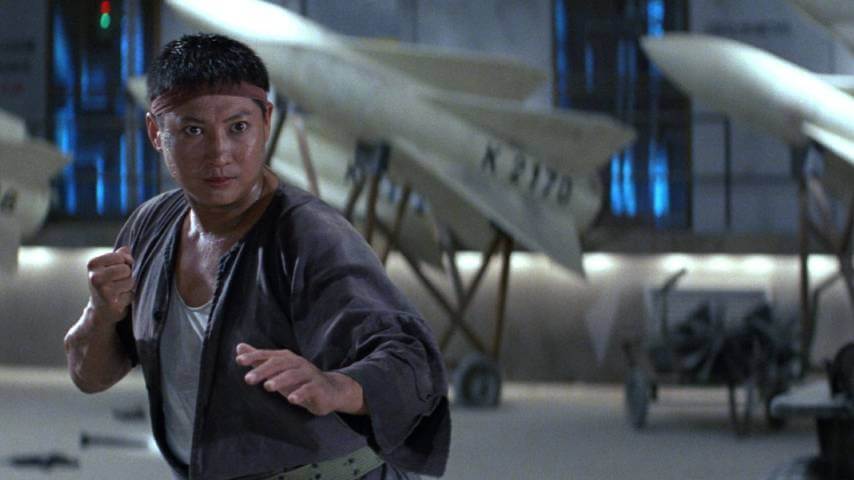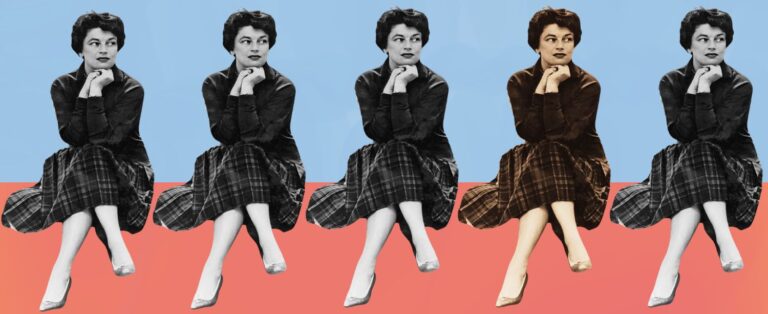Cult Of Criterion: Eastern Condors

In Cult Of Criterion, The A.V. Club highlights a new release from The Criterion Collection each month, examining the films entering an increasingly accessible film canon.
Only Sammo Hung could inject a grim Vietnam war movie with the kind of bouncy humor that always seems to accompany his regular troupe of acrobatic action heroes. Eastern Condors places the legendary Hong Kong actor-director at the helm of his own Dirty Dozen, as a group of Asian-American prisoners find themselves mired in a military quagmire as wet and nihilistic as Southern Comfort in pursuit of their freedom and enough cash to chase the American dream. Of course, that will never happen for these poor schmucks, dropped into postwar Vietnam on a mission that’s literally been canceled before it even begins.
Hung and his frequent screenwriter Barry Wong push plenty of this thematic dourness throughout the ensemble’s futile quest to blow up an old arms depot lest it falls into the wrong hands. All the way to the final “America: can’t live with it, can’t live without it” style punchline, Hung’s 1987 look back at Vietnam’s aftermath makes a show of its fighters sticking to their guns even when their doom is ensured. And doom comes fast and furious: Eastern Condors’ sizable cast means plenty of cannon fodder, and the convict-soldiers drop like flies. The first casualty caps a cruel stuttering gag, but death abounds—some of it even overcoming the slapstick and ball-busting to actually hurt.
This tonal balancing act and easy rapport are Hung specialties. Fresh off his three Lucky Stars films (which filled their low-brow action-comedy with Hung’s Peking Opera schoolmates), the filmmaker was practiced at rolling out a car of martial artist clowns. It’s not just that Eastern Condors featured the talents of four of the Seven Little Fortunes (including Hung), but that Hung was so skilled at blocking his gaggle of collaborators so that the unit’s individual performers were easily discernible.
Among those hard men kicking, shooting, stabbing, and leaping through this action film are a rakish Yuen Biao, a lecherous Charlie Chin, a Corey Yuen who’s literally always got an unlit cigarette dangling from his lips, and a cartoonishly evil Yuen Wah as the opposing honcho of the Viet Cong. Legendary fight choreographer/director Yuen Woo-ping finds the most pathos of the group as their elder “Grandpa” while Joyce Godenzi (who Hung would go on to marry) plays a Cambodian guerrilla fighter who gets her hand chopped completely off. By Hung’s character, no less!
One of the strangest cast members, though, is Haing S. Ngor, the medical doctor who had won a groundbreaking Supporting Actor Oscar just three years earlier for his first-ever acting role in The Killing Fields. Let’s just say that Ngor’s physical comedy abilities are not quite on par with his stunt-happy co-stars.
But in the eclectic mix of Eastern Condors’ characters, Hung finds plenty of different motives for chasing a goal which will likely never be achieved. Though the film is undeniably silly—from its character names (Potato Head?) to its giggling, sniveling oddball of a final boss—it also has undeniable moments of poignance. Though no compassion is spared for the Vietnamese (perhaps unsurprising given that the film came out a year before the Comprehensive Plan of Action codified Hong Kong’s crackdown on the influx of so-called “boat people” refugees), both the Asian American heroes and the group of Cambodian guerillas they encounter are allowed moments of thoughtfulness. Their lives, to an extent, are dictated by forces beyond their control. Naturally, this leads to personal investment in making some kind of change, no matter how small. Whether it means fighting in the shadows or climbing a U.S. flagpole to show some bumbling white soldiers how it’s done, there’s a pursuit of dignity even amid the fart jokes and groin kicks.
There are fart jokes and groin kicks aplenty though. Hung, perhaps the slimmest he’s ever been, pinballs around the film while Yuen Biao almost moves too fast for his feet’s feats to sink in. At one point he throws a nearly vertical kick, with the camera capturing it for a split second from above, and then the film returns to the combat as if nothing special had happened. Yuen Wah’s showcase is equally impressive. Not only does the lanky fighter whip his limbs around like sword blades, but bends himself into unlikely configurations like a MMA contortionist. He pratfalls onto some stairs and you’re certain he’s broken his spine. While the hand-to-hand fighting is on par with Hung’s usual work, the showstoppers are a few gravity-defying leaps. A few, emerging from water, are superheroic, while one off of a clifftop is more Jackass in nature (in that you hope the jumper survives).
In this whirling, energetic take on a postwar war film, Hung’s Eastern Condors still manages to pack in all the hallmarks of Hong Kong action—when it’s not directly riffing on The Deer Hunter or Apocalypse Now. That unexpected blend of flavors is par for the course for Hung, but his ability to turn them into something delectable only highlights the comfort he had with cast, crew, and genre in the midst of his titanic run in the '80s.


